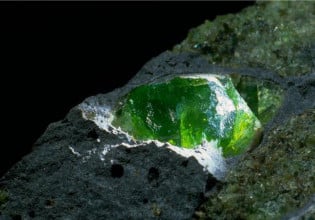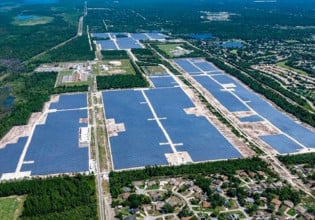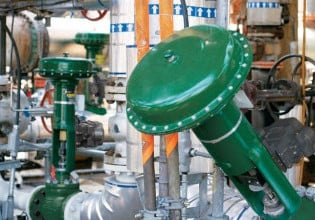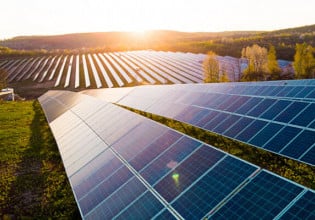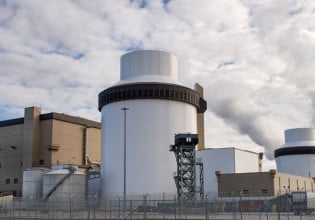Showa Denko and Plantec Test Thermoelectric Power Generation Modules In Waste Incinerator
Showa Denko K.K. (SDK) and Plantec Inc. (Plantec) have started full-scale demonstration experiments in power generation based on waste heat, using SDK’s thermoelectric conversion modules in a waste incinerator built by Plantec.
SDK’s thermoelectric elements and modules have achieved high conversion efficiency in the medium operational temperature range of 300-600°C. Based on the results of successful continuous operation for about four months (3,000 hours), the two firms will begin testing this month SDK’s newly developed thermoelectric modules with longer durability.
Heat energy is directly converted into electricity based on electric potential difference caused by temperature differences at both sides of thermoelectric elements. It is estimated that around 70% of total energy provided in Japan is wasted, being emitted into the atmosphere. Thermoelectric power generation will enable utilization of this vast untapped energy from different sources, including incinerators, automobiles, ships and industrial equipment. It will also help reduce CO2 emissions.
Development of thermoelectric power generation has so far focused on the low temperature range of 100-300°C involving hot springs and diesel engines. SDK aims to commercialize thermoelectric power generation in the medium temperature range (300-600°C) with higher output in view of the presence of several thousands of waste incinerators in Japan.
Modules consist of thermoelectric elements arranged in the form of plates or cylinders. SDK has been developing thermoelectric elements based on its expertise in sintered rare earth magnetic alloys and powdered alloys, using rare earths, iron, cobalt and antimony. SDK’s latest thermoelectric elements are cost-competitive as they are made using rare earths with little restrictions in supply. In the production of modules, SDK uses its bonding and heat design technologies acquired as a result of its business in design and production of heat exchangers for automotive air-conditioners.
To achieve high power output, it is necessary to ensure that materials for thermoelectric elements have high electrical conductivity and low heat conductivity. SDK has developed high-performance thermoelectric elements by applying its advanced quick-cooling technology for the production of sintered magnetic alloys.
Specifically, materials for thermoelectric elements are quickly cooled and solidified, for efficient formation of filled skutterudites (a structure having the property as a semiconductor), and then sintered. Furthermore, SDK’s proprietary bonding technology is used in the production of modules, enabling high output at around 500°C. In laboratory tests where temperature at hot side is 600°C and temperature at cold side is 50°C, SDK has achieved a conversion efficiency of 6.2% and power density of 2.4 W/cm². SDK has also achieved a maximum output of 21.6 W, which represents the highest level in the world for thermoelectric modules.
Plantec, which has built more than 100 incinerators at home and abroad, is supporting the experiments, installing SDK’s thermoelectric modules in a waste incinerator and taking steps to improve the levels of durability and maintenance. Through these development efforts, SDK and Plantec aim to provide a new heat recovery technology that can be used at many incineration facilities throughout Japan.
The two companies will continue developing thermoelectric power generation modules with higher output and durability, thereby contributing to reductions in CO2 emissions and conservation of resources.


